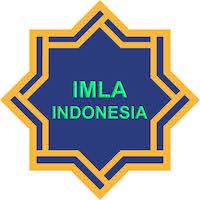Supervision to Improve the Professional Competence of Arabic Language Teachers at the Islamic Boarding School
DOI:
https://doi.org/10.18592/jams.v10i2.8656Keywords:
Supervision, competence, professional, arabic lenguage teacherAbstract
The teacher must possess four competencies, one of wich is professional competence. The teacher’s professionalism has a graet influance on the education process. A professional teacher will create effective education in the classroom. Therefore, the teachers is commmited to improving his efficiency in education in accordance with the development of technology and science. One way to increase it is through intensive supervision with the use of technology in the current era. And the objectives of supervision is to increase the knowledge and experience of the teacher in the implementation of the theacing of the arabic lenguage. And to take advantage of information technology facilities as one of the teacher’s professionalism, especially to improve the teachers in using a strategy and method in the education procces. The scientific journal uses the decriptive qualitatitive type, and the data collection methods are observation, interview, and documentation. In this mentoring there are three stages namely is planning, implementation, and evaluation. The assistance program is carried out for a month with online and offline systems (hybird). And the result of this study indicate the teacher is given YouTube content that is relevant to the goals and learning materials. The teacher designs the lesson and is reviewed by the sacilitator. The teacher applies the learning design in class with the facilitator. Then evaluate and reflect of the implementation of learning. It can be concluded that the use of technology is very large in this supervision program.References
Ahmad Muradi. “Pengembangan Kompetensi Guru Bahasa Arab Melalui IMLA
Sebagai Organisasi Profesi.” Jurnal of Arabic Studies 1, no. 2, 2016.
Andi Ibrahim, Asrul Haq Alang, Madi, Baharuddin, Muhammad Aswar Ahmad,
Darmawati. METODOLOGI PENELITIAN. Makassar: Gunadarma Ilmu,
Andi Susanto, Fitria Mardika, Syahlul Erbi Syaputra, Rayhan Meldi Sentana,
“Pendampingan Guru Madrasah Ibtidaiyah Negeri di Sumatra Barat Melalui
Pelatihan Berhitung Cepat untuk Peningkatan Kompetensi Profesional,”
JPKM, vol. 29, no. 1, 2023.
Evi Emaliana, Ismarita Ihda Rahmiati, Pratnyawati Nurudi Suwarso, Dian Inayati,
“Pelatihan Penulisan Karya Ilmiah الagi Guru MGMP Bahasa Inggris
SMA/MA Se-Malang Raya,” DINAMISA, vol. 3, no. 2, 2019.
Gunawan Ibrahim Almikarramah. Kompetensi Kinerja Guru Menurut Kurikulum
K-13. Jakarta: Sefa Bumi Persada, 2018.
Hari Ariyanto dan Syarifah. “Strategi Pembelajaran Bahasa Arab dalam
Meningkatkan Minat Belajar Bahasa Arab Siswa Kelas VII MTs Nurul
Muttaqin Simpang Tiga” Jurnal al-Mu’arib: Jurnal Pendidikan Bahasa
Arab 1, no. 1, 2021.
Ilyas Yasin. “Guru Profesional, Mutu Pendidikan, dan Tantangan Pembelajaran,”
Jurnal Penelitian dan Pengabdian Kepada Masyarakat Bidang Ilmu
Pendidikan, vol. 3, no. 2, 2022.
Mohammad Ahsanuddin, Imam Asrori, Moh. Ainin, Lalily Maziyah, Ali Ma’sum,
Muhammmad Alfan, Irma Nur Fiani, Dony Sunarno, Afkhoriyatul Hilmi,
“Pelatihan Peningkatan Kompetensi Profesional Guru Bahasa Arab
MA/SMA/SMK,” AT-TAMKIN, vol
Downloads
Published
Issue
Section
License
Copyright (c) 2023 Mahmudah Syams

This work is licensed under a Creative Commons Attribution 4.0 International License.
Authors who publish with this journal agree to the following terms:
- Authors retain copyright and grant the journal right of first publication with the work simultaneously licensed under a Creative Commons Attribution License that allows others to share the work with an acknowledgement of the work's authorship and initial publication in this journal.
- Authors are able to enter into separate, additional contractual arrangements for the non-exclusive distribution of the journal's published version of the work (e.g., post it to an institutional repository or publish it in a book), with an acknowledgement of its initial publication in this journal.
- Authors are permitted and encouraged to post their work online (e.g., in institutional repositories or on their website) after the submission process, as it can lead to productive exchanges, as well as earlier and greater citation of published work.






